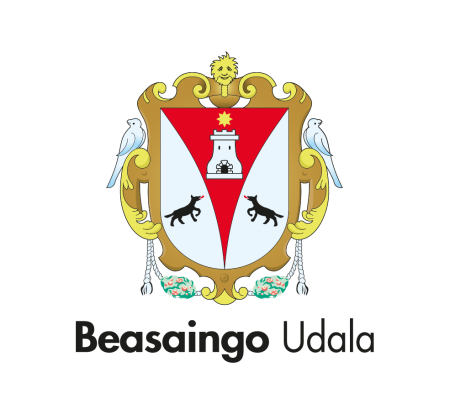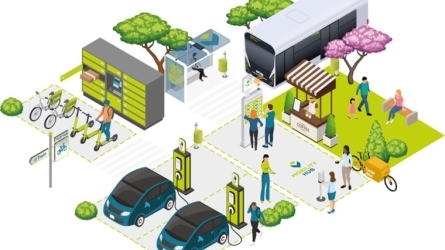
Smart Mobility: Mugikortasun adimentsu eta jasangarri bateruntz
Description
Gipuzkoako Goierri bailara, mugikortasunaren arloan abangoardian egon da historikoki. Badira 100 urte baino gehiago CAF Beasainen trenak fabrikatzen hasi zela eta Irizarrek 1929tik dihardu azken teknologiadun autobusak merkaturatzen. Erreferentzia diren enpresak ardatz bilakatuta, mugikortasun sektoreko ikerkuntza eta garapen ekosistema indartsu bat osatu da eskualdean.
XXI. mendean sartzearekin bat, sektore guztiak astindu dituen paradigma aldaketa bat gertatu da: digitalizazioan eta konputazioan eman diren aurrerapausoak eragin duten iraultza teknologikoa. Mugikortasunean, Smart Mobilty kontzeptua sortu da Big Data eta azpiegitura digital berrien eskutik. Pixkanaka, lagundutako gidatzedun ibilgailuak, ibilgailu autonomoak, logistika adimentsua, Smart-Parking-a eta ibilgailu partekatu sistemak ezagunagoak zaizkigu.
Eszenatoki berri honetan, mugikortasuna ulertzeko modu berri bat azaleratu da eta nahitaez, merkatuan eragina duten enpresa, ikerkuntza zentru, unibertsitate eta beste agenteek erronka berri honi heldu beharko diote.
Objectives
Erkidegoan mugikortasun adimentsuan aplikagarriak diren teknologiak garatzen ari diren ikerkuntza talde, enpresa eta erakundeen topaleku izatea.
Bailarako enpresek Smart Mobility-aren inguruan dituzten etorkizuneko erronka eta lan-ildoak ezagutzea.
Herritarrak Smart Mobility kontzeptura gerturatu eta mugikortasun jasangarrirako garraiobide berrien pedagogia egitea.
Activity directed to
- University student
- Students not from university
- Teachers
- Professionals
- All public
Program
15-09-2022
Erregistroa / Registro
Institutional Opening session. Speaking order:
- Leire Artola Ugalde | Beasaingo Udala - Alkatea
- Maider Kortaxarena Rubio | Uda Ikastaroak Fundazioa - Idazkari Akademikoa
Presentation by the Director of the activity
- Adur Ugartemendia Leunda | Beasaingo Udala - Lurraldea saileko lehendakaria
“Inteligencia artificial para una movilidad más inteligente“
- Antonio David Masegosa | Deusto Smart Mobility - Ikerketa Zuzendaria
“Retos para el futuro del CCAM - Connected, cooperative and automated mobility“
- Oihana Otaegui Madurga | Vicomtech - Zuzendaria
“Tecnologías digitales para la mejora de la seguridad y el confort en la transición hacia la conducción autónoma“
- Inés Juliana del Campo Hagelstrom | EHU - Ikerketa Zuzendaria - Diseño en Electrónica Digital
“Digitalización de la movilidad: retos tecnológicos para la futura movilidad conectada, cooperativa y automatizada“
- Ray Alejandro Lattarulo | Tecnalia
Break
Round table: “Ikerkuntza Agenteen Mahai ingurua“
- Adur Ugartemendia Leunda | Beasaingo Udala - Lurralde saileko lehendakaria (Moderator)
- Antonio David Masegosa | Deusto Smart Mobility - Zuzendaria
- Ray Alejandro Lattarulo | Tecnalia
- Inés Juliana del Campo Hagelstrom | UPV/EHU - Ikerketa Zuzendaria - Diseño en Electrónica Digital
- Oihana Otaegui Madurga | UPV/EHU - Ikerkuntza Zuzendaria - Computer Vision & Pattern Discovery
“Errepideko garraio kolektiboaren mugikortasun joerak“
- Joxean Etxebeste | Irizar - Ingenieritza arduraduna
“La nueva movilidad, sostenible y autónoma“
- Aitor Gaztañares | CAF
Closing session
- Irakaslea zehazteke | Eusko Jaurlaritza
“Arratsaldeko Saioko Aurkezpena“
- Leire Artola Ugalde | Beasaingo Udala - Alkatea
“Introducción a la movilidad sostenible y digital“
- Héctor Cañas | Babel Smart Cities - Smart City Kontsultorea
“Movilidad Compartida y Movilidad Como Servicio (MAAS) “
- Héctor Cañas | Babel Smart Cities - Smart City Kontsultorea
“Presentación de "ParteCar", la nueva APP de carpooling para Beasain“
- Alexis Atalaya Cerna
Closing session
- Adur Ugartemendia Leunda | Beasaingo Udala - Lurraldea saileko lehendakaria
Directors

Adur Ugartemendia Leunda
Beasaingo Udala
Adur Ugartemendia Leunda es Arquitecto por la Escuela Técnica Superior de Arquitectura de San Sebastián EHU/UPV (2011) con Máster Universitario en Dirección Comercial y Marketing por la UDIMA (2016). Asimismo, tiene formación en Urbanismo Ecológico y en Estrategia de Sostenibilidad Urbana y Local por la Universidad Autónoma de Madrid (2012). Tras varios años como comercial a nivel internacional en start-up's de construcción prefabricada y arquitectura, durante su última etapa en la empresa privada, fue reponsable comercial para Oriente Medio de la ingeniería donostiarra LANIK. Desde diciembre de 2020, es Primer Teniente de Alcalde y Presidente de la Comisión de Territorio del Ayuntamiento de Beasain.
Speakers
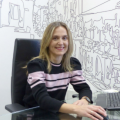
Leire Artola Ugalde
BEASAINGO UDALA
Leire Artola Ugalde es licenciada en Derecho con especialización en Economía por la Universidad de Deusto (1999). Cuenta con una amplia experiencia como gestora comercial gracias a una trayectoria de 15 años en la Caja Rural de Navarra. Entre 2011 y 2015 comenzó a compaginar su actividad profesional con la política al tomar el cargo de concejal en el Ayuntamiento de Beasain. Desde 2015 es política profesional. Tras una primera etapa en la que fue Primera Teniente de Alcalde y Presidenta del departamento de Territorio, en diciembre de 2020 fue nombrada alcaldesa de Beasain, la primera en toda la historia. Asimismo, es juntera de las Juntas Generales de Gipuzkoa.

Alexis Atalaya Cerna
Ingeniero industrial por la Universidad Católica de Lima y por la Politécnica de Madrid, y es el responsable de carpooling en organizaciones en Hoop Carpool.
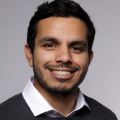
Héctor Cañas
Bable Smart Cities
Héctor es Ingeniero Civil con un máster en ingeniería de Procesos Ambientales por la Universidad de Stuttgart. Gracias a su experiencia laboral e investigadora, tiene competencias técnicas en el desarrollo de infraestructuras, la ingeniería medioambiental y las energías renovables. Trabaja en BABLE GmbH como consultor en proyectos centrados en la energía desarrollando hojas de ruta, estudios de viabilidad y estrategias de implementación.

Inés Juliana del Campo Hagelstrom
UPV/EHU
Inés del Campo (A'96 - M'11) was born in Buenos Aires, Argentina, in 1961. She received the Licenciado degree in physics with specialization in electronics and automatics in 1987 and the Ph.D. degree in physics, in 1993, both from the University of the Basque Country (UPV/EHU), Bilbao, Spain. Currently she is a Senior Lecturer in the Electricity and Electronics Department of the Faculty of Sciences and Technology of the UPV/EHU. She has published articles in international journals and conferences in the areas of electronics, computational intelligence, intelligent control, ambient intelligence, and pattern recognition, among others. Her research interests mainly concern system-on-chip (SOC) design, hardware/software codesign, reconfigurable hardware, pervasive computing, artificial neural networks (ANNs), fuzzy systems, and genetic algorithms. She is also interested in the internet of things and its application in the context of ubiquitous computing and ambient intelligence.

Joxean Etxebeste
Irizar
Joxean Etxebeste es Ingeniero Técnico Industrial por la Universidad de Mondragón (1991) e Ingeniero Superior con especialidad en Mecánica por el Institut Supérieur des Matérieux et de la Construction Mécanique de París (1993). Asimismo, cuenta con un MBA en Dirección de Empresas por la Universidad de Deusto (2005). Entre 1988 y 1991 fue profesor del departamento de fabricación de la Universidad de Mondragón y en el 2003 fue nombrado Director de Mondragón Assembly. Desde el 2008 es responsable de Ingeniería de Irizar. Durante este periodo además del desarrollo de nuevas carrocerías (i6, i8 e i3), ha liderado las soluciones de vehículos integrales (carrocería+powertrain) en todos los modelos de carrocería, vehículos híbridos y propulsados a gas (GNC y GNL).
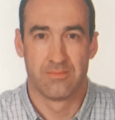
Aitor Gaztañares
Aitor Gastañares Etxezarreta es responsable de Tecnologías del departamento de Investigación de CAF, en el que ha trabajado desde 1990. Además, fue Responsable de Sistemas de Ingeniería en el periodo 2003-2008. Durante estas tres décadas ha sido testigo y partícipe de la evolución tecnológica de CAF.
Ray Alejandro Lattarulo
Ray Alejandro Lattarulo has more than 8 years of experience in the field of automation, control, and robotics. He obtained a Bachelor of Electronics Engineering from Simon Bolivar University (Venezuela) in 2014, and a PhD. in Control, Automation, and Robotics Engineering in UPV/EHU (Basque Country, Spain) in 2019. Currently, he is working in the Automated Driving field with almost 7 years of experience as a senior researcher. In this period, he has implemented a great variety of solutions from vehicle decision-making algorithms to control, passing through vehicle perception. Moreover, he has led (technically) Spanish, Basque, and European projects. He has worked in Tecnalia (Basque Country, Spain) since April 2016, and previously, he was working in industrial automation solutions for MCL Control (Venezuela between 2014 and 2016). He has more than 35 scientific publications.

Antonio David Masegosa
Deusto Smart Mobility
Antonio D. Masegosa se licenció en Ingeniería Informática en 2005 y se doctoró en Ciencias de la Computación en 2010, ambos por la Universidad de Granada. Desde junio de 2010 hasta noviembre de 2014 trabajó como investigador postdoctoral en el Centro de Investigación de las TIC de esta misma universidad. En 2014 recibió una beca de investigación IKERBASQUE Research Fellow para trabajar en la en DeustoTech, el Instituto Tecnológico de la Universidad de Deusto. En 2019 obtuvo la mención de IKERBASQUE Research Associate y actualmente es el Investigador Principal de grupo Deusto Smart Mobility. Ha publicado cuatro libros, 22 artículos JCR y más de 30 trabajos en congresos tanto internacionales como nacionales y dirigido dos tesis doctorales. Actualmente, es el coordinador técnico de un proyecto H2020 (TANGENT), líder de paquete de trabajo de otro proyecto H2020 (MOMENTUM) e investigador principal de un proyecto nacional. Sus principales intereses de investigación están relacionado con el diseño de técnicas de Inteligencia Artificial aplicadas a diferentes ámbitos de la movilidad tanto de personas como de bienes.
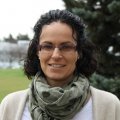
Oihana Otaegui Madurga
Vicomtech
Oihana Otaegui es Licenciada en Ingeniería en Automática y Electrónica por la Universidad de Navarra tras obtener matrícula de honor en la defensa del proyecto “Specific ASIC design based on PWM techniques for high performance Motor controller". En 2005 obtuvo el Doctorado Europeo – Suma Cum Laude en Ingeniería en Automática y Electrónica por esa misma Universidad, en colaboración con el Instituto Fraunhofer. Su tesis fue supervisada por la Agencia Espacial Europea que avaló su excelencia científica. En 1999 se incorporó al Instituto Fraunhofer IIS (Alemania), donde, hasta 2007, fue investigadora asociada, investigadora visitante y senior engineer, trabajando en el tratamiento digital de la señal de receptores GPS, en diseño de receptores multiseñales para la localización -en colaboración con CEIT- y en sistemas de consumo optimizado y embebidos. En 2007 se incorporó a Vicomtech para impulsar el área de Sistemas Inteligentes de Transporte, de la que es Directora desde 2010.

Irakaslea zehazteke
Registration fees
| Face-to-face | Until 15-09-2022 |
|---|---|
| 45,00 EUR | |
| 38,00 EUR | |
| 32,00 EUR | |
| 38,00 EUR | |
| 38,00 EUR |
| Live online | Until 15-09-2022 |
|---|---|
| 45,00 EUR | |
| 38,00 EUR | |
| 32,00 EUR | |
| 38,00 EUR | |
| 38,00 EUR |
Venue
Igartzako Jauregia
Igartzako Monumento Multzoa. Peategi z/g. 20200 Beasain
Gipuzkoa
Igartzako Jauregia
Igartzako Monumento Multzoa. Peategi z/g. 20200 Beasain
Gipuzkoa
Sustainable development goals
Agenda 2030 is the new international development agenda approved in September 2015 by the United Nations. This agenda aims to be an instrument to favour sustainable human development all over the planet, and its main pillars are the eradication of poverty, a reduction in equality and vulnerability and fostering sustainability. It is a unique opportunity to transform the world up to 2030 and guarantee human rights for all.

7 - Affordable and clean energy
Guaranteeing access to affordable, reliable, sustainable and modern energy for everyone. Key issues: universal access, increased proportion of clean energies, energy efficiency, research, fostering investments in energy infrastructures and clean technologies, modern and sustainable energy services.
More information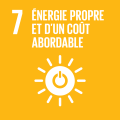
9 - Industry, innovation and infrastructure
Build resilient infrastructures, promote inclusive and sustainable industrialisation and foster innovation. Key issues: reliable, sustainable, resilient and quality infrastructures, inclusive and sustainable industrialisation, modernisation, clean and environmentally rational industrial technologies and processes, scientific research and improvement of technological capabilities, universal access to ICTs.
More information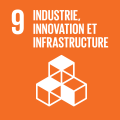
11 - Sustainable cities and communities
Make cities and other human settlements inclusive, safe, resilient and sustainable. Key issues: access to suitable housing and basic services that are secure and affordable, suitable and sustainable transport systems, inclusive urban planning, participative planning and management, protection of cultural and natural heritage, air-quality, green zones, and connections between urban, peri-urban and rural areas.
More information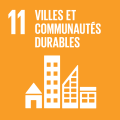
13 - Climate action
Adopt urgent measures to combat climate change and its effects. Key issues: mitigation, resilience and capacity for adaptation, planning, national strategies and plans, education and raising awareness, reduction of effects and early warning systems, compliance with the Framework Convention of the United Nations on Climate Change.
More information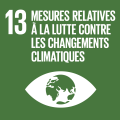
Other events of your interest
There are currently no events available.
